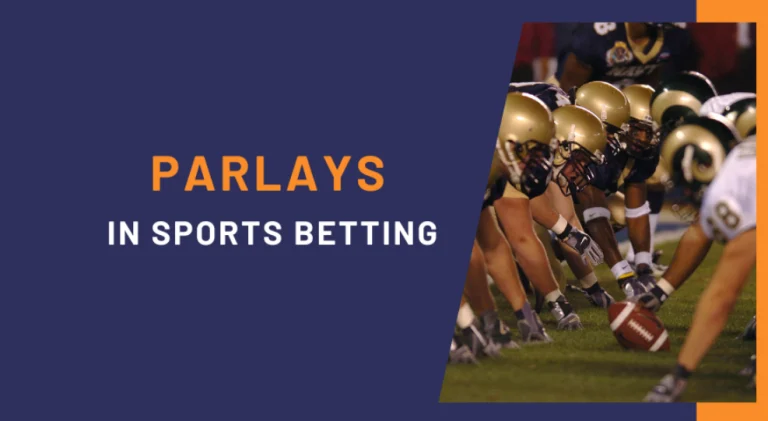Ignoring statistics a costly betting error
Every day, thousands of American bettors place wagers based purely on gut feelings, team loyalty, or media hype—and watch their bankrolls disappear. Ignoring statistics in betting is one of the most expensive mistakes you can make, whether you’re wagering on NFL games, NBA matchups, or placing crypto bets. This comprehensive guide reveals why analytical wagering outperforms guesswork every time and how you can transform your approach by embracing data-driven strategies.
Why statistics matter in sports betting 📊
The difference between professional bettors and casual gamblers isn’t luck—it’s methodology. Data provides objective measurements of team performance, player efficiency, and situational advantages that human perception often misses. When you understand the importance of stats in gambling, you recognize that every number tells a story about probable outcomes.
Professional bettors treat wagering like investing, using historical data to identify value opportunities where bookmaker odds don’t accurately reflect true probability. The numbers reveal patterns invisible to the naked eye: home-field advantages quantified as percentage points, player fatigue measured through minutes played, and defensive vulnerabilities exposed through advanced metrics. Without this analytical foundation, you’re essentially gambling blindfolded in a competitive marketplace where informed bettors consistently extract profit.
How ignoring data can cost you money in the US 🇺🇸
American sports wagering markets have exploded since 2018, with over $220 billion staked legally across US states. This massive market attracts sophisticated oddsmakers who set lines using complex algorithms and extensive databases. When you place bets without statistical analysis, you’re competing against professionals armed with superior information—a battle you’re mathematically destined to lose.
Consider a typical NFL Sunday where a casual bettor backs their hometown team despite poor defensive statistics. That emotional decision ignores crucial data: yards per play differential, turnover ratios, and red zone efficiency. The financial consequence? The average recreational punter loses approximately 5-10% of their total stakes annually, with emotional decisions compounding these losses. Betting mistakes multiply when you can’t distinguish between genuinely valuable odds and trap lines designed to attract uninformed money.
The importance of statistics in sports betting 📈

Statistical analysis isn’t optional for serious bettors—it’s the foundational requirement for long-term profitability. While casual gamblers might enjoy occasional wins through luck, consistent success demands understanding probability, expected value, and trend analysis. The common betting mistakes that drain bankrolls all stem from one core problem: deciding without data.
Think of analytics as your competitive edge in a zero-sum game. When sportsbooks set a basketball game at -6.5, they’ve already incorporated recent performance metrics, injury reports, and scheduling advantages. Wagering blind means accepting their assessment without verification—essentially trusting that Vegas made errors in your favor, which rarely happens.
Understanding key metrics 🧮
Success in data-driven sports betting requires fluency in essential metrics that predict outcomes better than surface-level statistics. Efficiency ratings—points per possession in basketball—reveal more than raw scoring totals. Understanding these contextual numbers prevents misleading conclusions.
- ✅ Expected Goals (xG) – Soccer metric measuring shot quality over volume
- ✅ DVOA (Defense-adjusted Value Over Average) – Football efficiency accounting for opponent strength
- ✅ Pythagorean Win Expectation – Baseball formula predicting record from runs scored/allowed
- ✅ Effective Field Goal Percentage – Basketball shooting efficiency including three-point value
- ✅ Corsi/Fenwick – Hockey shot attempt metrics indicating possession dominance
Sample size matters enormously. Three-game winning streaks mean nothing statistically—they’re well within random variance. Meaningful trends require minimum 20-30 game samples in most sports. Bettors who overreact to small samples commit common mistakes in sports betting, chasing patterns that don’t exist.
How ignoring stats leads to betting errors 💥
The psychological trap of data-free wagering creates predictable failure patterns. Bettors operating without data naturally gravitate toward recent memories, prominent narratives, and emotional connections—all proven to destroy bankrolls systematically.
Recency bias causes massive losses by overvaluing latest results. When a quarterback throws four touchdowns one week, casual bettors flood his next game regardless of opponent defensive rankings. Statistical analysis reveals regression to mean—exceptional performances usually follow with average ones.
Emotional decision-making vs data-driven bets 😵
Emotional betting vs analytics represents the fundamental divide between losing and winning approaches. Emotional bettors select teams based on loyalty, excitement, or revenge narratives—factors statistically irrelevant to outcome probability. They increase stakes after losses attempting to recover quickly, a death spiral called “chasing.”
Data-driven bettors eliminate these psychological vulnerabilities by following systematic processes. They calculate expected value—comparing their probability assessment against bookmaker odds to identify mathematical advantages. They maintain detailed spreadsheets tracking every bet’s outcome, analyzing which strategies produce profit. This disciplined approach removes emotion entirely.
Examples of big losses from ignoring statistics
These scenarios cost American bettors millions because obvious statistical signals were ignored. Overvaluing hype in betting particularly shows when championship teams resting starters create predictable fade opportunities.
Setting a weekly vs monthly betting budget 💰
Bankroll budgeting strategies separate sustainable bettors from those who bust out during inevitable losing streaks. Your wagering budget must be completely separate from living expenses—money you can afford to lose without impacting rent, food, or other financial obligations. Most experts recommend risking no more than 1-5% of your disposable income on sports wagering, with conservative players staying under 2%.
The budget structure you choose significantly impacts decision quality and longevity. Weekly budgets create more frequent reset points, preventing catastrophic months where early losses spiral into desperate stake increases. Monthly budgets offer flexibility for capitalizing on strong opportunities without arbitrary restrictions. Neither approach is universally superior; the right choice depends on your discipline level and wagering frequency.
Why budgeting helps contract poor decisions 🧭
Strict budget limits act as circuit breakers preventing the most destructive sports betting mistakes. When you have exactly $200 for the week, you can’t chase Tuesday’s losses with reckless Wednesday parlays. The mathematical boundary forces more selective wagers, naturally improving bet quality.
Budgeting also quantifies risk in tangible terms. Risking $50 per bet with a $200 weekly budget allows exactly four wagers. This concrete limitation makes you evaluate whether that Thursday night NFL game truly represents sufficient edge. Without budgets, every moderately interesting game becomes a wagering opportunity.
Benefits of weekly limits 📆
Weekly vs monthly betting limits represent different philosophies about self-control. Weekly structures excel for bettors prone to extended losing streaks spiraling out of control. The forced weekly reset prevents disasters from continuing, compartmentalizing damage. Weekly budgets encourage more selective wagering. With only 7 days to deploy capital, you become naturally more discriminating about which games offer genuine statistical edges. This selectivity improves your overall win rate by eliminating mediocre bets.
Benefits of monthly limits 🗓️
Monthly budgeting provides flexibility that serious analysts appreciate. When you identify a statistically significant edge, you can allocate appropriate resources without arbitrary weekly restrictions. This structural freedom rewards the skill of recognizing truly valuable spots.
The monthly approach better accommodates variance inherent in sports wagering. Winning weeks and losing weeks balance out over 30-day periods more reliably, giving your strategy time to prove its expected value.
Tools and apps to help manage your bankroll 🧰
Modern technology transformed bankroll apps for bettors from simple expense trackers into sophisticated analytical platforms. These tools eliminate manual calculation errors, provide instant profitability feedback, and identify which bet types generate the best returns.
The best bankroll management apps include features specifically designed to prevent common betting mistakes: bet sizing calculators, loss limit alerts, and performance analytics breaking down results by sport and bet type.
Top apps for tracking bets 📱
Crypto betting tools have evolved significantly as more American bettors use Bitcoin, Ethereum, and other cryptocurrencies. These specialized applications track bets across both USD and crypto platforms, converting all wagers to consistent currency for accurate profitability analysis.
Leading crypto wagering trackers integrate with blockchain explorers, automatically importing transaction data from your wallet addresses. This automation eliminates tedious manual entry that causes most bettors to abandon tracking systems.
Top 5 tools to avoid costly betting mistakes ⭐
- ✅ Bet Tracker Pro – Comprehensive spreadsheet-style interface with custom tags and confidence ratings. Supports USD and major cryptocurrencies with automatic conversion. Monthly cost: $9.99, free basic version available. 🎯
- ✅ Action Network – Free platform combining bet tracking with real-time odds comparison across US sportsbooks. Shows where professional bettors place large wagers. 💪
- ✅ Pikkit – Social wagering tracker with community features. Follow successful bettors’ picks and analyze their strategies. Great for learning data-driven sports wagering. Free basic tier available. 🏆
- ✅ Excel/Google Sheets Templates – Simple spreadsheets for bet tracking offering full control over metrics. Calculate ROI by sport, average odds, and streaks. Completely free and customizable. 📊
- ✅ BetBull – Focused on cryptocurrency wagering tracking with exchange rate monitoring. Supports 50+ cryptos and offers tax reporting for US users. Subscription: $14.99/month. ₿
Analyzing statistics effectively 📐
Understanding analytics requires more than reading numbers—you need interpretive skills distinguishing meaningful data from misleading metrics. Misreading odds errors occur when bettors confuse correlation with causation, extrapolate from insufficient samples, or fail to adjust for confounding variables.
Effective statistical analysis starts with identifying which metrics actually predict future performance versus descriptive stats documenting what already happened. Context-adjusted metrics account for opponent quality, situational factors, and league-wide trends—providing predictive insight.
Key stats to monitor before placing bets 📊
Every sport demands specific statistical focus based on what drives winning. In NFL wagering, situational data vastly outweighs season-long averages. A team’s performance on short rest versus full rest might differ by 8-10 points per game.
NBA wagering revolves around pace and efficiency metrics. Points per 100 possessions normalizes scoring across different tempo teams, revealing true offensive quality. Baseball demands the most sophisticated statistical understanding—advanced metrics like wRC+, FIP, and BABIP provide legitimate predictive power.
Must-check stats before wagering 📋
- ☑️ Recent form – Last 5-10 games performance, weighted by opponent quality
- ☑️ Head-to-head history – Specific matchup trends (requires 10+ game samples)
- ☑️ Home/away splits – Some teams show dramatic performance differences by venue
- ☑️ Injury reports – Missing starters can shift lines 3-7 points
- ☑️ Rest days – Back-to-backs in NBA, short weeks in NFL significantly impact performance
- ☑️ Weather conditions – Wind affects NFL totals by 3-4 points
- ☑️ Motivation factors – Playoff positioning, revenge games, meaningless late-season contests
- ☑️ Officiating crews – NBA referees show measurable tendencies on foul rates
- ☑️ Public betting percentages – Helps identify contrarian value
- ☑️ Line movement – Track whether odds shifted toward or away from your position
This checklist prevents the lazy betting mistakes of wagering based solely on team names or win-loss records.
Combining statistical analysis with bankroll management 💡
The synergy between sound analytics and disciplined bankroll management creates compounding advantages. Statistical analysis identifies which bets offer positive expected value; proper bankroll management ensures you can survive inevitable variance. Neither element succeeds without the other.
This integration transforms wagering from gambling into investing. You’re making calculated investments in positions where your analysis suggests market inefficiency. The stake sizes reflect your confidence level based on statistical certainty.
How statistics inform stake size 💵
Sophisticated bettors adjust bet sizing based on statistical confidence using mathematical formulas like the Kelly Criterion. This calculation determines optimal wager size by comparing your assessed probability against bookmaker odds.
In practice, most professionals use fractional Kelly—typically 25% to 50% of the full Kelly recommendation—because even excellent statistical models contain error margins. This conservative adjustment protects against model overconfidence while still properly scaling bets to edge size.
Balancing risk and reward in USD and crypto bets ⚖️
Crypto wagering tools require special consideration because cryptocurrency volatility adds another risk layer beyond the underlying sports wagers. A Bitcoin bet represents two simultaneous positions: the sports outcome and Bitcoin’s price movement.
Smart crypto bettors hedge this exposure by maintaining some USD balance, converting crypto winnings to stablecoins periodically, or sizing crypto bets smaller than USD wagers to account for added volatility.
Real-life examples of betting failures ⚽
History provides countless cautionary tales of sports betting mistakes destroying bankrolls through statistics denial. One notorious example involved 2007 NFL Patriots going undefeated through 16 games. Public bettors hammered New England every week despite increasingly inflated lines. Statistical analysis showed their point differential didn’t justify the historic spreads they were laying. The Giants ultimately beat them in the Super Bowl as substantial underdogs.
Another classic pattern emerges around hyped rookie quarterbacks in the NFL. Media narrative builds tremendous excitement, driving public money onto these players regardless of statistical reality: rookie QBs historically struggle, particularly on the road. Fading rookie QB road hype has generated consistent profit for decades.
Famous sports upsets due to ignoring statistics 🏀
The 2016 Cleveland Cavaliers comeback from 3-1 deficit against Golden State shocked the basketball world, but the numbers suggested it wasn’t the impossibility media portrayed. Cleveland’s superior rebounding numbers, Draymond Green’s suspension impact, and Curry’s injury concerns all provided statistical warning signs that casual bettors dismissed.
Leicester City’s 2015-16 Premier League title at 5000-1 preseason odds represented the ultimate statistical upset. However, underlying metrics showed warning signs. Their expected goals differential wasn’t historically bad the previous season. Advanced stats suggested they were unlucky rather than genuinely terrible.
Bet with insight, not guesswork 🧭
The fundamental difference between successful and failing bettors isn’t luck or inside information—it’s systematic approach to decision-making. Every professional bettor follows established processes rooted in statistical analysis and disciplined bankroll management.
Building this systematic approach requires initial investment: learning essential statistics for your preferred sports, establishing tracking systems documenting every wager, and developing analytical models incorporating relevant variables. Most importantly, follow your system during inevitable losing periods. Trust in process, not results, separates professionals from amateurs.
FAQ
What happens when bettors ignore statistics in sports?
They make emotional decisions and lose 5-10% of their bankroll annually through negative expected value bets.
How can statistical analysis improve my odds of winning?
Stats reveal mathematical edges where bookmaker odds are inaccurate, turning losing strategies into profitable ones.
Are there tools to track stats for betting on USD and crypto?
Yes, apps like Bet Tracker Pro and BetBull support both currencies, with free and premium options available.
How often should I update my statistical models for betting?
Daily for basic models (10-15 minutes), monthly backtesting for advanced systems.
Can ignoring player injuries or team changes lead to losses?
Absolutely—injuries shift lines 3-7 points, giving informed bettors a major edge over those who don’t check.









